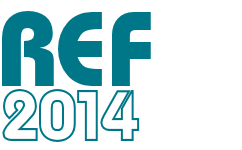 An opportunity has arisen for an Outputs Champion for Unit of Assessment (UOA) 23 (Education) to help drive preparations for the next REF. This role would initially be until summer 2022. BU is making early preparations towards units of assessment (UOAs) for the next Research Excellence Framework (REF) exercise. Each UOA has a UOA Leader, supported by Impact and Outputs Champions. The roles are recruited through an open and transparent process, which gives all academic staff the opportunity to put themselves forward for UOA Leader roles.We are currently seeking expressions of interest (EoI) from academic staff interested in supporting outputs development for UOA 23 (Education).
An opportunity has arisen for an Outputs Champion for Unit of Assessment (UOA) 23 (Education) to help drive preparations for the next REF. This role would initially be until summer 2022. BU is making early preparations towards units of assessment (UOAs) for the next Research Excellence Framework (REF) exercise. Each UOA has a UOA Leader, supported by Impact and Outputs Champions. The roles are recruited through an open and transparent process, which gives all academic staff the opportunity to put themselves forward for UOA Leader roles.We are currently seeking expressions of interest (EoI) from academic staff interested in supporting outputs development for UOA 23 (Education).
Output Champions play a key role in shaping the output element of their UoA’s submission. Key responsibilities of the Output Champion role include:
- Support the development of research outputs being prepared within the UOA
- Provide guidance on how research outputs can be produced and published
- Advise colleagues on the REF output guidelines specifically those in relation to assessment, open access and research metrics
- Review output strategies related to the UOA and assess progress made against them
- Ensure that colleagues are updating institutional systems such as BRIAN and BURO
- Promote Open Access publication and use of the Open Access Publication Fund as appropriate
- Promote relevant training and development opportunities
- Review outputs arising from major programmes of research and knowledge exchange to make recommendations as to how these can contribute to the UoAs output profile
- Work with Post-Doctoral Research Fellows on REF Output related activity as appropriate.
Application process:
To apply for the role, please submit a short statement (suggested length 300 words) explaining your interest in the role and what you could bring to it. This should be sent by email to Dr. Gelareh Roushan by 14 January 2022. The EoIs will be reviewed by the UoA Leader and DDR&PP.
The selection criteria used at EoI are outlined below. Each criterion carries a total possible score of 5. The role will be offered to the highest scoring applicant. The UoA Leader will provide feedback to all applicants.
- Knowledge of the REF (scored out of 5): Applicants should have the appropriate level of skill and knowledge to help them support the development of outputs in their UoA. It is expected that Output Champions will predominantly be practising researchers and will have a breadth of understanding of research across their Faculty. They are also expected to have an understanding of the REF assessment process and of research outputs and open access.
- Experience of output development (scored out of 5): Output Champions are expected to be able to provide advice and direction to colleagues who want to develop their research outputs.
- Commitment, motivation and enthusiasm (scored out of 5): Being an Output Champion is a big commitment and the role has the scope to help shape output development at BU. Applicants need to be committed to the role, as well as showing the enthusiasm and motivation needed to support their UoA.
A role description is available here: Outputs Champion Role
 On the eighth day to Christmas, my RKEO friend gave to me, 8 Outputs a milking (apologies that this sounds really odd).
On the eighth day to Christmas, my RKEO friend gave to me, 8 Outputs a milking (apologies that this sounds really odd).


 We have a series of externally-facilitated REF outputs workshops scheduled to take place in early 2018 as part of the RKE Development Framework. Each session is led by REF 2014 sub-panel member who will explain how the panel interpreted and applied the REF 2014 guidance when assessing the quality of outputs. The workshops are open to all academic staff to attend.
We have a series of externally-facilitated REF outputs workshops scheduled to take place in early 2018 as part of the RKE Development Framework. Each session is led by REF 2014 sub-panel member who will explain how the panel interpreted and applied the REF 2014 guidance when assessing the quality of outputs. The workshops are open to all academic staff to attend.














 Conversation article: London Marathon – how visually impaired people run
Conversation article: London Marathon – how visually impaired people run Horizon Europe News – December 2023
Horizon Europe News – December 2023